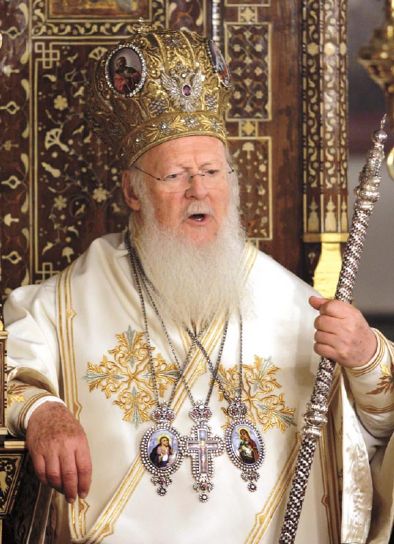Europe is asking Ankara to recognize the Ecumenical Patriarchate and other religious minorities
17 Μαρτίου 2010
 A ruling of the European Commission for Democracy says in fact that the title «ecumenical» Patriarchate of Constantinople is universally recognized and it does not understand the insistence of Turkish authorities in denying a historically established fact. Europe’s warning useful to Erdogan’s in his battle to reform the constitution.
A ruling of the European Commission for Democracy says in fact that the title «ecumenical» Patriarchate of Constantinople is universally recognized and it does not understand the insistence of Turkish authorities in denying a historically established fact. Europe’s warning useful to Erdogan’s in his battle to reform the constitution.
Istanbul (AsiaNews) – The European Commission for Democracy has made a ruling urging Turkey to recognize as from time immemorial the entire international community has done, the status of the Ecumenical Patriarchate and its historical role as it was already defined the sixth century. In the same ruling the legal status of all religious minorities in Turkey is recognized.
The committee, the so-called Venice committee, named after the lagoon city where it gathered the day before yesterday, is part of the Council of Europe, which brings together 47 states, including Turkey.
The Turkish authorities, since the foundation of the Turkish Republic in 1923, have refused to recognize the religious status of the See of Constantinople, considering it simply as a single diocese of the Orthodox community and the recognizing the Patriarch of Constantinople the sole function of the pastor of his community.
This ruling, observes the noted journalist, editor of www.amen.gr Nikos Papachristou, in addition to restoring the historic right of Constantinople, lays the foundation not only for the reopening of the Theological School of Halki (pictured), but also to change the current situation, for which the metropolitans must be Orthodox Christians of Turkish nationality.
The Commission states that the title «ecumenical» from the Patriarchate of Constantinople is universally recognized and that it does not understand the insistence of Turkish authorities in not recognizing a historically defined fact that is accepted throughout the world. This committee links the work of the theological school to the role of the Ecumenical Patriarchate and has called for its immediate reopening. It explicitly calls on Turkey to legally recognise the Ecumenical Patriarchate and all the religious communities present in Turkey. The discussion was attended by two representatives of the government from Ankara, whose arguments were rejected.
The committee also reminded Turkey of compliance with Article 9 of the Treaty on Human Rights, which establishes the right to religious freedom, which must not hinder the exercise of religious functions and the See of Constantinople to be titled the Ecumenical Patriarchate. Certainly, it is said in the ruling, Turkey is not obliged to recognize the ecumenical title, but it can not, however, force anyone to deny this historical title that is defined and universally accepted. And on that point, the grand jury said they did not understand the legal reasons for which Turkey refuses to recognize the historic role of the patriarchate.
The ruling rejected Ankara’s appeal to the Lausanne Treaty, in so far as it makes no mention of the Ecumenical Patriarchate and therefore places no restriction on the exercise of its role. In this regard, committee members commented that the Treaty of Lusanne (1923) is now superseded and surpassed by recent treaties on the rights of man. So continuing to invoke it is a sign of defensive positions that have long been exceeded.
The sentence, though once again condemns Turkey for breach of human rights, in essence, does not displease Erdogan, who can now reproach the godfathers of the old bureaucratic nomenclature, concentrated in the judiciary and the Supreme Court, a mentality that is not appropriate to European dimension, and may invoke the need to accelerate the reform of the Turkish Constitution, widely seen as responsible for all the ills of Turkey.
It may be coincidence, but at last Thursday’s meeting in the Dolmabahce Palace in Istanbul, that included the Deputy Prime Minister Bulent Arinc, who is also responsible for the religious foundations, and all the spiritual leaders of religious minorities, including Bartholomew, when asked by reporters about the reopening of the Theological School of Halki, the same Arinc replied that the Erdogan government has decided to allow its reopening.
Hopes are born for a real springtime for religious minorities in Turkey.





